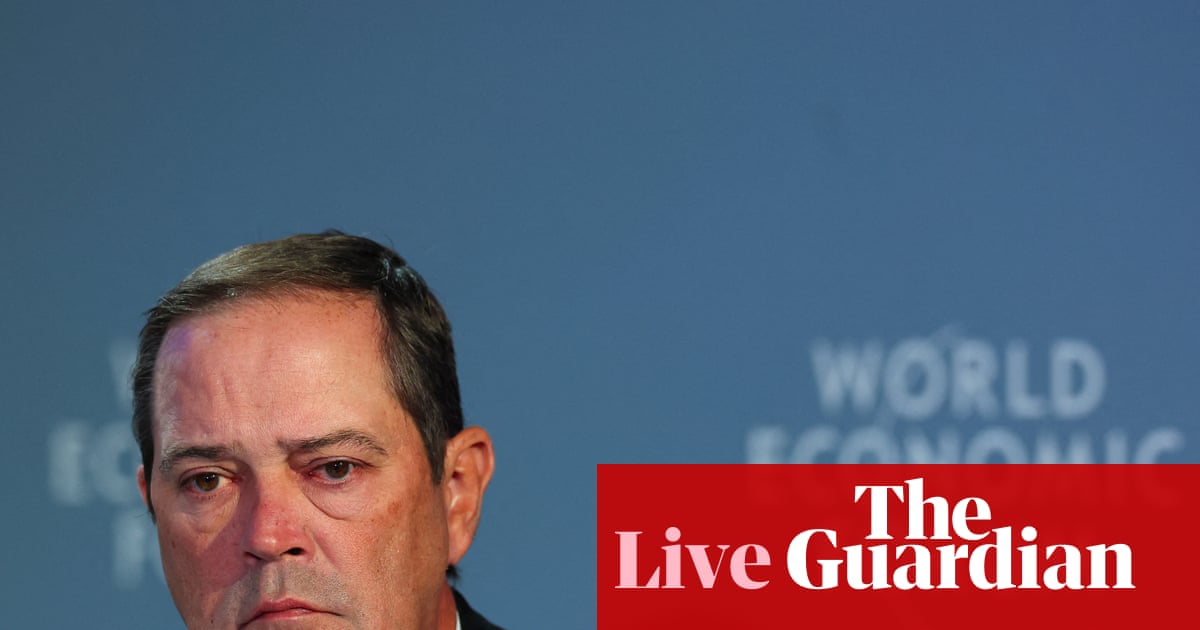Donald Trump’s government is putting intense pressure on vulnerable countries to vote against measures that would force shipping companies to pay for their carbon emissions.
US officials have written to countries that support the measure and besieged them with phone calls threatening to impose tariffs, withdraw visa rights and take other retaliatory action.
The moves appear to be having some impact and, if successful, could throw more than two decades of tortuously slow progress on decarbonising the shipping industry into reverse.
Representatives from most of the 176 member states of the International Maritime Organization (IMO), which governs global seafaring, are meeting at its headquarters in London for four days of talks. They are expected to approve new rules that would levy charges on ships based on their greenhouse gas emissions. The money raised would go to funding the transition to cleaner fuels for ships and to help developing countries.
The pricing mechanism could start operating from 2028, raising an estimated $10bn (£7.5bn) a year, and would be the first time that shipping companies had to pay for the damage they do to the climate. Shipping represents about 3% of global greenhouse gas emissions currently, but that is forecast to rise to 10% by mid-century.
Although the carbon levy was approved at an IMO meeting in April, the complex procedures of the UN body mean it must be reaffirmed by two-thirds of countries this week. After that, countries have a further 10 months to decide whether to accept it, followed by a period of assessment and refinement before new rules can finally be introduced.
Trump is attempting to halt the measure. At the April meeting, US officials issued a public letter objecting to the carbon pricing mechanism and walked out of the talks, which continued without them. Since then, Trump has spoken publicly of his opposition to the measure.
On Friday, the US secretary of state, Marco Rubio, along with energy secretary Chris Wright and transport secretary Sean Duffy, issued a public statement threatening to slap tariffs on countries that supported the measure, as well as other commercial penalties such as port fees on ships that complied.
The statement also hinted at targeting individual negotiators in the talk by “evaluating sanctions on officials sponsoring activist-driven climate policies that would burden American consumers”.
Behind the scenes, the US has also issued a démarche – a diplomatic document – seen by the Guardian, which lists retaliatory measures.
“Our government will consider reciprocal measures to offset any fees charged to US ships and compensate American people any related economic harm from any adopted greenhouse gas emissions measures,” the document reads. “These measures could include, but are not limited to, the following actions to those countries supporting the net zero framework: levying additional tariffs; increasing port levies on ships owned, operated by or flagged in your country; reexamining eligibility for crew members for visa categories; increasing downline disembarkation fees for your nationals visiting US ports.”
Many people involved in the negotiations said that developing countries, and some developed countries, were concerned by the threats. In April, the measures passed with the support of 63 IMO member states and 16 countries against, though the US walked out and 24 countries abstained. Several small Pacific island states abstained because they felt the measure was too weak and should impose stiffer penalties.
Working alongside the US against the measure are several petrostates, including Saudi Arabia, the United Arab Emirates and Qatar. The Guardian understands that Saudi’s approach is to offer sweeteners and hold out the promise of future deals or economic opportunities to entice developing countries to change their minds. Riyadh is also thought to have offered to pay the travel costs for officials from countries not present in April to attend this week and vote against the measures.
Depending on who turns up, it could take only a dozen or so countries to flip their votes – or a larger number of previous absentees to turn up and vote against it – to block the motion. It is understood that several countries are now considering opposition, including the Philippines, Turkey, Argentina and Australia.

Arsenio Dominguez, secretary-general of the IMO, said he believed the consensus formed in April would prevail. “Last April, we reached a compromise – which is the text we have in front of us for adoption – on the technical and pricing mechanism measures. This is an agreement from the membership, based on years of negotiations, input, assessment and analysis,” he said. “My goal is, and always will be, to keep all the organisation together. There are concerns and we will address those concerns as we move forward.”
He added that a vote could be called if the consensus was unclear. “For me, [this] is the meeting where we’re going to adopt the amendments. How we do it is a mechanism that the member states will decide, based on established legal practices.”
Tuvalu was one of the Pacific nations that abstained in April, finding the compromise agreement for a levy too weak. Simon Kofe, minister of transport and energy for Tuvalu, had proposed several amendments this week that would strengthen the compromise, including the urgent setting up of a fund to disburse revenues generated by the proposed measure.
He said: “While larger, wealthier nations debate the threat to livelihoods, Pacific island nations are forced to consider the threat to lives and to statehood itself. That is the scale of what is at stake. We call on every delegation to set a course toward a just and equitable transition. This is about more than shipping. It is about survival.”
A US government spokesperson said: “We are actively engaging with countries on the extremely flawed proposal, as well as exploring and preparing to act on remedies including tariffs, visa restrictions, and/or port levies. We will also be engaging our like-minded partners and allies to propose they take similar measures. We will fight hard to protect the American people and their economic interests.”

 3 months ago
187
3 months ago
187

















































